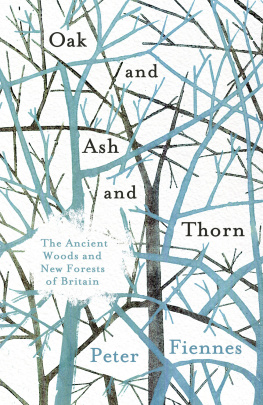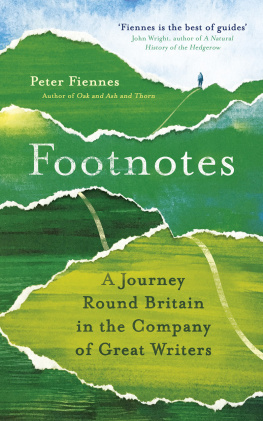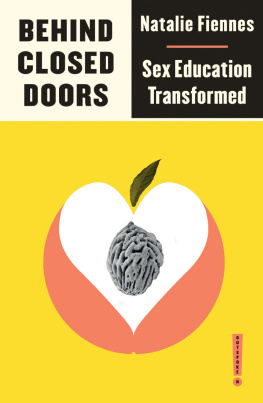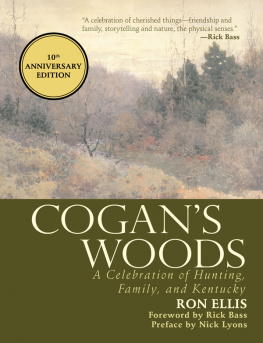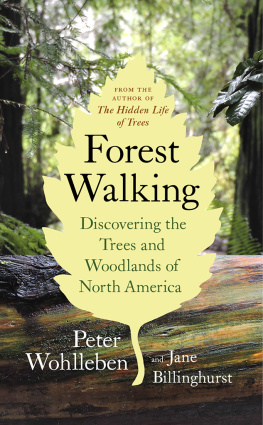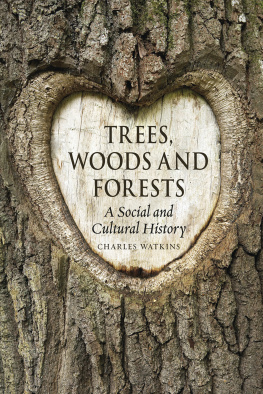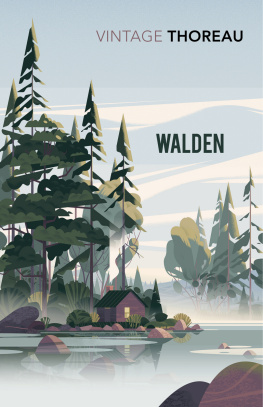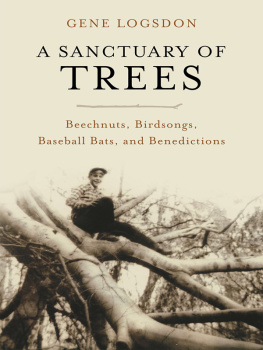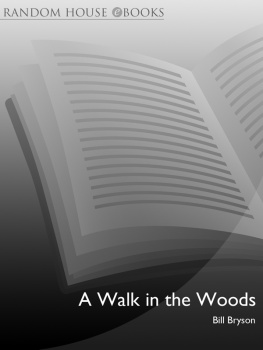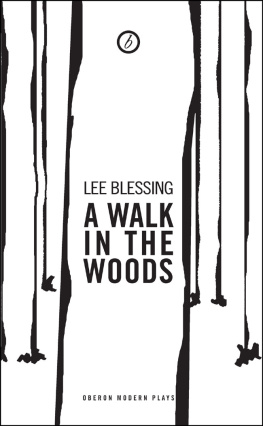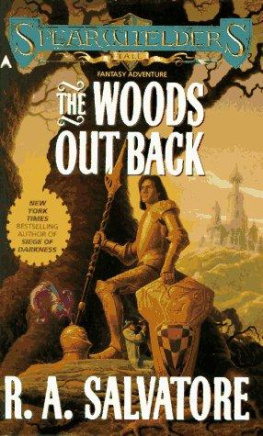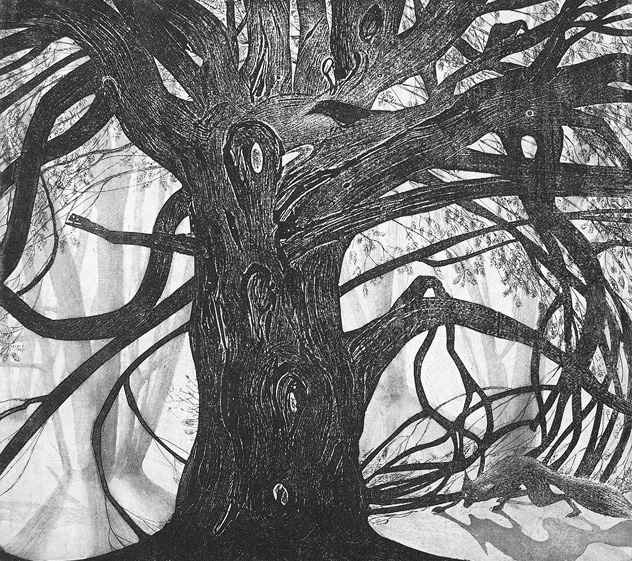Praise for
Oak and Ash and Thorn
A wonderful wander into the woods that explores our deep-rooted connections cultural, historical and personal with the trees.
Rob Cowen, author of Common Ground
Oak and Ash and Thorn is a lament. A lament for the trees and forests we have lost since the first axe glistened and the first torch flared. The destruction frequently came from plain necessity, but also, to our shame, from greed, stupidity and, as Fiennes suggests, fear. Despite the inventory of tragedy in his book, Fiennes is the best of guides, gently, eloquently and with a fierce humour telling a sad story relating chapters of fascinating detail to brighten his tale and quoting the poets as he goes. Despite the calamity that our relationship with trees has become, this is not a depressing book. Oak and Ash and Thorn may be a lament, but Fiennes invigorates and arms us with the knowledge to ensure that it will not become a requiem.
John Wright, author of A Natural History of the Hedgerow
Taking to the woods to tell stories about the value of trees and woods is not new there is a lot of tree-woods-forest writing about but its fresh and raw and urgent to Fiennes, and thats entirely the point. His sensibilities are inescapably metropolitan, and yet harbour the poetic soul of Edward Thomas and the greenwood outlaws. Oak and Ash and Thorn is a tender hymn to the trees, a manifesto for a woodland society, a contemporary gazette of ideas and attitudes radiating into the future like annual rings from the original pith: that inexplicable enchantment with trees. In this lyrical, informative, unashamedly arboreal propaganda, one mans walk in the woods can inspire a generation.
Paul Evans, author of Field Notes from the Edge
About the Author
Peter Fiennes is the author of To War with God , a moving account of his grandfathers service as a chaplain in the First World War. As publisher for Time Out , he published their city guides, as well as books about Londons trees and Britains countryside.
Dedicated with love to my woodland walking companions, Anna, Natalie, Alex, Esme, Biddy and Bonnie
Some more willing than others
Contents
Here, in fact, is nothing at all
Except a silent place that once rang loud,
And trees and us imperfect friends, we men
And trees since time began; and nevertheless
Between us still we breed a mystery.
Edward Thomas, fro m The Chalk-Pit
Introduction
If you go down to the woods today youre sure of a big surprise.
Jimmy Kennedy, 1932
Like most people in Britain, I no longer have any daily connection with its woods. There are a lucky few who live and work among the trees, but mostly we go about our lives as though they are not there sealing ourselves in at work and at home, hurrying from car park to shop, keeping the wild at bay. This is a change from even fifty years ago, when the boundaries between our towns and the woods were more ragged and blurred and certainly from one hundred years earlier, when most of us would have known someone who worked or foraged in the woods, or we would have done so ourselves.
Today, we have less woodland cover than almost any other European country, despite four decades of hard planting by the Woodland Trust and other dedicated charities. For a couple of generations, we even seemed determined to get rid of the woods entirely, ripping up and poisoning the native broadleaf trees and replacing them with close-packed rows of fast-growing conifers. And yet, despite all this, I dont think we were ever going to let the woods go and nor were they ready to leave us. They still fill our childhood stories, call to us from the edges of the cities, and permeate our dreams. Like millions of others, I was horrified when the government announced in 2010 that it was selling off our public woods even though at the time, in all honesty, I had no idea that there even was such a thing as a public reserve of forests. Later, I found myself wondering: what kind of demented ideologue would want to sell them off?
This thwarted government sell-off must have preyed on my mind, because a few years later I found myself gripped with a desire to find out what was going on in the woods. Perhaps it was because Id lived in London for so long, and was adrift from the woods of my childhood, but I felt I needed to find out what shape the woods were in and who was looking after them. From what I read, they always seemed to be under threat from roads, high-speed railways, housing, neglect, golf courses, ignorance, greed and the convulsing climate. So thats how I ended up spending a year in the woods. Not literally, Im afraid theres nothing here on how to survive on a diet of squirrels and tubers but for twelve months I visited as many woods as I could, from small copses to the new national forests, and I steeped myself in the poetry, science, folklore, history and magic of woodlands.
The original plan was to split the book into chapters that would follow the themes that interested me: conservation, ownership, conifers, history, magic and myth, our fear of the woods, climate change, woodland legends, childhood, and our current obsession with what is native or alien. It seemed that there was also something to say about Britishness (or Englishness) and belonging. Along the way I wanted to learn about every species of British tree (and hunt down some ancient ones) and even find a scrap of the original wildwood, untouched by the busy workings of humanity. But of course the woods and the trees are not so easily contained. The lines between the chapters became confused, the roots entangled, and I did what any child could have told me I shouldnt have done: I left the path . Still, I think the book is better for it and the original pattern can be easily traced, like a medieval woodbank showing through the scrub of a regenerating forest.
My year in the woods covered the seasons and the book is roughly chronological, beginning and ending in the same wood in Herefordshire, close to the English/Welsh border. I was surprised by what I found the damage being done, but also the many inspiring people working hard to nurture, preserve, spread and replenish our woods. Above all, I was left with a new sense of urgency. Time is running out and we desperately need to enthuse new generations to love and protect the woods, although that is only going to happen if we throw them open to as many people as possible. Despite everything, I am very hopeful. There are millions of us who care deeply for woods and even if sometimes it might seem as though we are beset by bigger, more devastating problems, just try to imagine a land without trees.
Kipling was right:
Surely we sing no little thing,
In Oak, and Ash, and Thorn!

